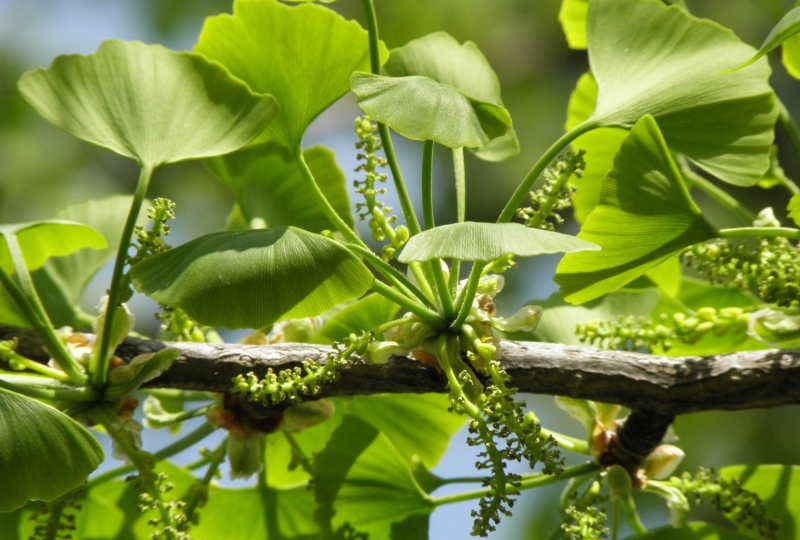Nearly 40% of people over the age of 65 experience some form of memory loss. When there is no underlying medical condition, this process is known as “age-associated memory impairment” and is considered part of the normal aging process. The cause is most likely a deficit in the neurotransmitter acetylcholine, with occasional memory lapses not damaging brain neurotransmitters and symptoms can be corrected with simple interventions.
The most common herbal supplements used to improve mild cognitive impairment include Galanthus woronowii, Ginkgo biloba, Panax notoginseng, and Polygala tenuifolia willd. Several classification systems have been developed to determine their efficacy, taking into account mechanism of action, use, and potential side effects.
Galanthus woronowii, also known as Voronov’s snowdrop, contains a natural alkaloid called galantamine that has the ability to penetrate the blood-brain barrier, reduce acetylcholine degradation, and improve cognition in patients with Alzheimer’s disease. The main side effects of galantamine are nausea, vomiting, diarrhea, dizziness and agitation. This naturally occurring alkaloid forms the basis of the synthetic drug galantamine, which is approved by the Food and drug administration for the treatment of mild to moderate Alzheimer’s disease. Whether use of the plant in its natural form results in greater clinical efficacy has not been demonstrated.
Ginkgolic acid, found in ginkgo biloba leaves, is thought to stimulate prostaglandin synthesis, resulting in vasodilation, which increases tissue perfusion and cerebral blood flow. Hence, the rationale for its action in improving cognitive ability, concentration and memory. The National Center for Complementary and Integrative Health (Nccih) lists its side effects as headaches, stomach upset, allergic skin reactions and increased risk of bleeding in elderly and pregnant patients. Ginkgo should be avoided in patients with epilepsy who are taking seizure medications, such as phenytoin, carbamazepine, and phenobarbital. Several small studies have shown modest improvements in cognitive function for older adults with dementia, but larger studies have not confirmed that it prevents memory loss or slows the progression of cognitive decline or Alzheimer’s disease in older adults. In adults with normal cognition or mild cognitive impairment, ginkgo biloba does not slow cognitive decline.
Panax notoginseng saponins (Pns) are the main active compound extracted from the root of the perennial plant Panax notoginseng and a recent review of this plant shows that it has anti-inflammatory and antioxidant properties and is able to inhibit neuronal apoptosis. Pns is hypothesized to be a multitargeting agent with anti-inflammatory properties that leads to brain nerve preservation and regulates nerve cell activity and secretion, exerting antidepressant and anxiolytic effects. Side effects include dry mouth, skin redness, rashes, nervousness, sleep problems, headaches, nausea, vomiting, and birth defects in animal studies. This, therefore, is not recommended for pregnant or lactating patients.
Polygala Tenuifolia Willd, also known as Yuan Zhi or Senega root, is commonly used for recovery from stroke, insomnia, depression, and degenerative conditions such as Alzheimer’s. Supplementation may slightly increase cognitive ability in the elderly and has a limited effect on cognition for healthy adults. Adverse events include hypoglycemia in patients taking antidiabetic drugs, overproduction of antibodies in those taking immunosuppressive drugs. Avoid in pregnancy. Supplementation may improve spatial organization and recognition, but does not improve short- or long-term memory formation as measured by free or guided recall. Much more research is needed to determine if Polygala tenuifolia can be considered a nootropic supplement.
Bibliography
Enhancing cognitive function with herbal supplements. Nursing clinics of north America. Volume 56, Issue 1, March 2021, Pages 59-67
Potential effect of herbal antidepressants on cognitive deficit: pharmacological activity and possible molecular mechanism. Journal of ethnopharmacology. Volume 257, 15 July 2020, 112830
Can ginkgo biloba prevent memory loss? Mayo Clinic. June 8, 2020

